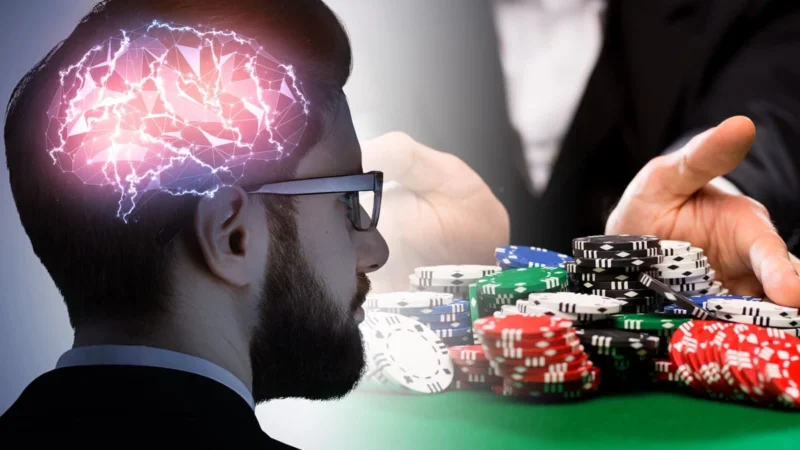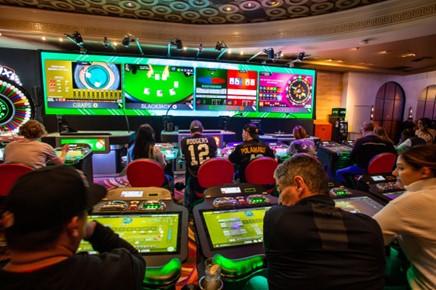The Psychology of Gambling: Understanding Risk and Reward

The Psychology of Gambling: Understanding Risk and Reward
by vivienne 05:33pm Jan 09, 2025

Gambling is an activity that has intrigued humans for centuries, combining elements of chance, strategy, and emotion. While the games themselves vary widely, the psychological factors that drive gambling behavior are remarkably consistent. By understanding the interplay between risk and reward, we can better comprehend why people gamble and how it impacts their decision-making.

Why Do People Gamble?
The Thrill of Risk Gambling provides a unique emotional experience, often described as a rush or thrill. The uncertainty of the outcome triggers excitement, making the act of placing a bet inherently rewarding.
The Hope of Reward The potential to win money or prizes is a powerful motivator. For some, gambling offers the dream of a big payoff, even if the odds are against them.
Social Interaction Casinos, poker games, and even online platforms create opportunities for social engagement. For many, gambling is as much about the social experience as the games themselves.
Escape from Reality Gambling can serve as a temporary escape from stress, boredom, or personal challenges. The immersive nature of games keeps players focused and engaged.
Cognitive Biases Psychological factors, such as the illusion of control (believing one can influence random outcomes) and gambler’s fallacy (expecting past outcomes to affect future ones), often contribute to continued gambling.

Understanding Risk
Perception of Risk People’s perception of risk in gambling often differs from reality. Many underestimate the house edge or overestimate their chances of winning, leading to riskier behavior.
The Role of Uncertainty Uncertainty plays a central role in gambling’s appeal. The unpredictability of outcomes keeps players engaged and invested, even when losses occur.
Risk Tolerance Each individual has a different level of risk tolerance, influenced by factors such as personality, financial situation, and past experiences. High-risk gamblers may chase big wins, while others prefer low-stakes games.
Addiction and Risk For some, gambling can evolve from recreational to problematic. The pursuit of high-risk bets to recoup losses or replicate previous wins is a hallmark of gambling addiction.

Understanding Reward
The Role of Dopamine Gambling activates the brain’s reward system, releasing dopamine—a neurotransmitter associated with pleasure and motivation. Even small wins or near-misses can trigger a dopamine response, reinforcing the behavior.
Intermittent Rewards Unlike predictable rewards, gambling offers intermittent reinforcement, where wins are sporadic. This type of reward system is highly addictive because players never know when the next win will occur.
The Near-Miss Effect Near-misses, such as just missing a jackpot, can be as stimulating as actual wins. This psychological effect encourages continued play, even in the face of losses.
The Big Win Effect A significant win early in a gambling experience can create lasting memories and expectations, motivating players to chase similar outcomes.

The Impact of Gambling Psychology
Emotional Decision-Making Gambling often involves emotional decisions rather than rational ones. Excitement, frustration, and desperation can all influence betting behavior.
Chasing Losses Many gamblers fall into the trap of chasing losses, believing they can win back money if they continue playing. This behavior often leads to further losses and emotional distress.
Overconfidence Winning streaks can lead to overconfidence, causing players to take bigger risks or ignore the odds. This mindset increases the likelihood of significant losses.
Loss Aversion Humans are naturally averse to losses, often valuing the avoidance of a loss more than the acquisition of a gain. This bias can lead to risky bets in an attempt to break even.

Responsible Gambling Practices
Set Limits Establishing clear time and money limits before gambling helps prevent overindulgence and maintains control.
Recognize Triggers Identify emotional or situational triggers that might lead to impulsive gambling and develop strategies to manage them.
Understand the Odds Educate yourself on the odds of games and the house edge. Realistic expectations reduce the likelihood of problematic behavior.
Seek Help When Needed If gambling becomes a source of stress or financial difficulty, seek professional help. Resources such as support groups and counseling services are available to assist.
Conclusion
The psychology of gambling is a complex interplay of risk and reward, fueled by cognitive biases, emotional triggers, and the brain’s reward system. Understanding these factors can help individuals approach gambling with a healthier perspective, making it a source of entertainment rather than a potential problem. By recognizing the psychological influences at play, gamblers can make informed decisions and enjoy the experience responsibly.






